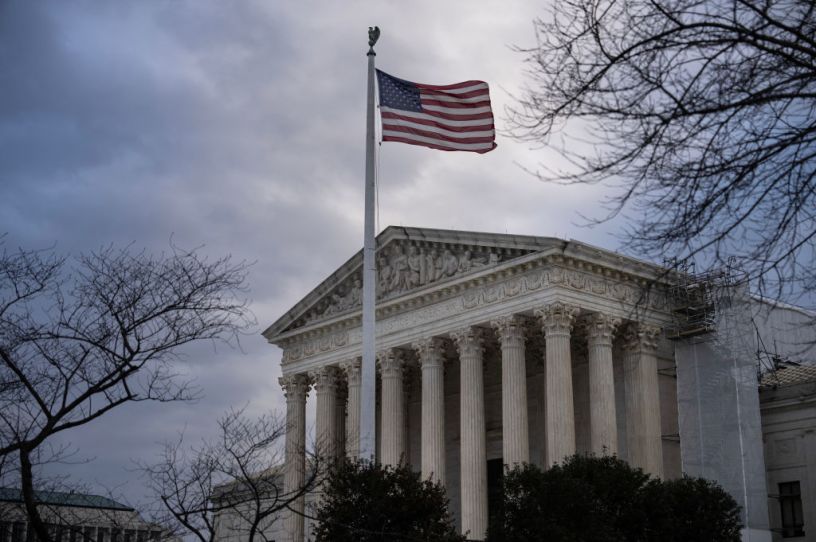The Supreme Court Case That Shows How Broken Congress Is

The Supreme Court heard oral arguments last week in a case about fishing boats and it could spell the end of government as we know it. I hope it does.
The legal questions may not be all that fascinating. What is fascinating, however, is how the legal issues help explain why our government and our politics are so dysfunctional.
First, the facts of the case: In 2020, the National Marine Fisheries Service issued a new requirement to prevent overfishing. Federal inspectors would be placed on commercial fishing boats to ensure that no one exceeded their quotas. Fair enough. But the government said that the companies would have to pay for the monitors themselves, to the tune of $700 per day. Loper Bright Enterprises, a New Jersey commercial fishing company, sued, arguing that Congress never intended any such thing when it wrote the relevant law some 44 years ago.
The question before the Supreme Court, posed in Loper Bright Enterprises vs. Raimondo and a companion case, Relentless vs. Department of Commerce, is whether regulatory agencies can make up rules Congress may never have intended. Under a doctrine called “Chevron deference,” the answer since 1984 has been “yes”—if the agency’s interpretation is reasonable.
If you want to score all of this as a right vs. left thing, your scorecard is going to get messy. That’s because conservative justices, including the late Antonin Scalia, once championed Chevron deference. Now, liberals lead the fight in favor of giving the executive branch leeway, warning that overturning Chevron could lead to judicial activism. “Agencies know things that courts do not,” Justice Elena Kagan said during oral arguments, “and that’s the basis of Chevron.” Chevron is a “doctrine of humility,” she added. The Center for American Progress, a liberal think tank, calls the effort to overturn Chevron a “judicial power grab.”
I think there are good arguments on both sides. Obviously, courts should defer in some circumstances to experts at, say, the Nuclear Regulatory Agency or the Food and Drug Administration, particularly on highly technical areas outside the expertise of judges.
On the other hand, there are times when regulators might exceed their authority under the law or Constitution, and judges have every right and obligation to step in. I suspect that if Donald Trump becomes president and fills regulatory agencies with MAGA zealots, many liberals worrying about a “judicial power grab” will be begging the courts to intervene.
And bear in mind, in 2005, the court, with a majority opinion by Justice Clarence Thomas, ruled in National Cable & Telecommunications Association v. Brand X Internet Services, that not only should courts defer to the experts, but that every new administration gets a free hand at changing what passes for expert opinion every four or eight years. In other words, all of the talk of “following the science” sounds great until new political appointees get to decide what the science says.
This gets to the part that I find fascinating. The question of whether the judicial or the executive branches should be the final word on regulatory policies misses the elephant in the room: Congress should be the first word.
If Congress wants to pass a law requiring fishermen to pay for monitors on fishing boats, it can. Likewise, it can pass laws to forgive student debt, legalize marijuana, clarify free speech issues for social media, provide amnesty for illegal immigrants, build a border wall, and a thousand other things.
But it doesn’t.
Instead, Congress does one of three things: 1) nothing at all; 2) write deliberately vague legislation punting hard decisions to Cabinet secretaries and administrators; or 3) lobby the executive branch to do things Congress is too cowardly to do itself.
Some of those things take the form of unconstitutional executive orders. In short, the real problem is that the courts and the executive branch are stuck crafting public policy because Congress has sidelined itself.
It’s difficult to exaggerate how much this has distorted our politics. Congress is the most democratic branch of government, which is why the founders invested it with the most power. It’s where political disagreements are supposed to be hammered out. But by absolving itself of that responsibility, we’ve turned presidential elections into de facto parliamentary elections in which one party gets to make law through regulatory fiat. This in turn has invited courts to overstep their traditional role because legislative vagueness has become a central feature, not a failing, of lawmaking.
The Supreme Court probably can’t make Congress do its job, but until Congress takes itself seriously, courts and bureaucrats will continue to get stuck with problems that aren’t their job to fix.